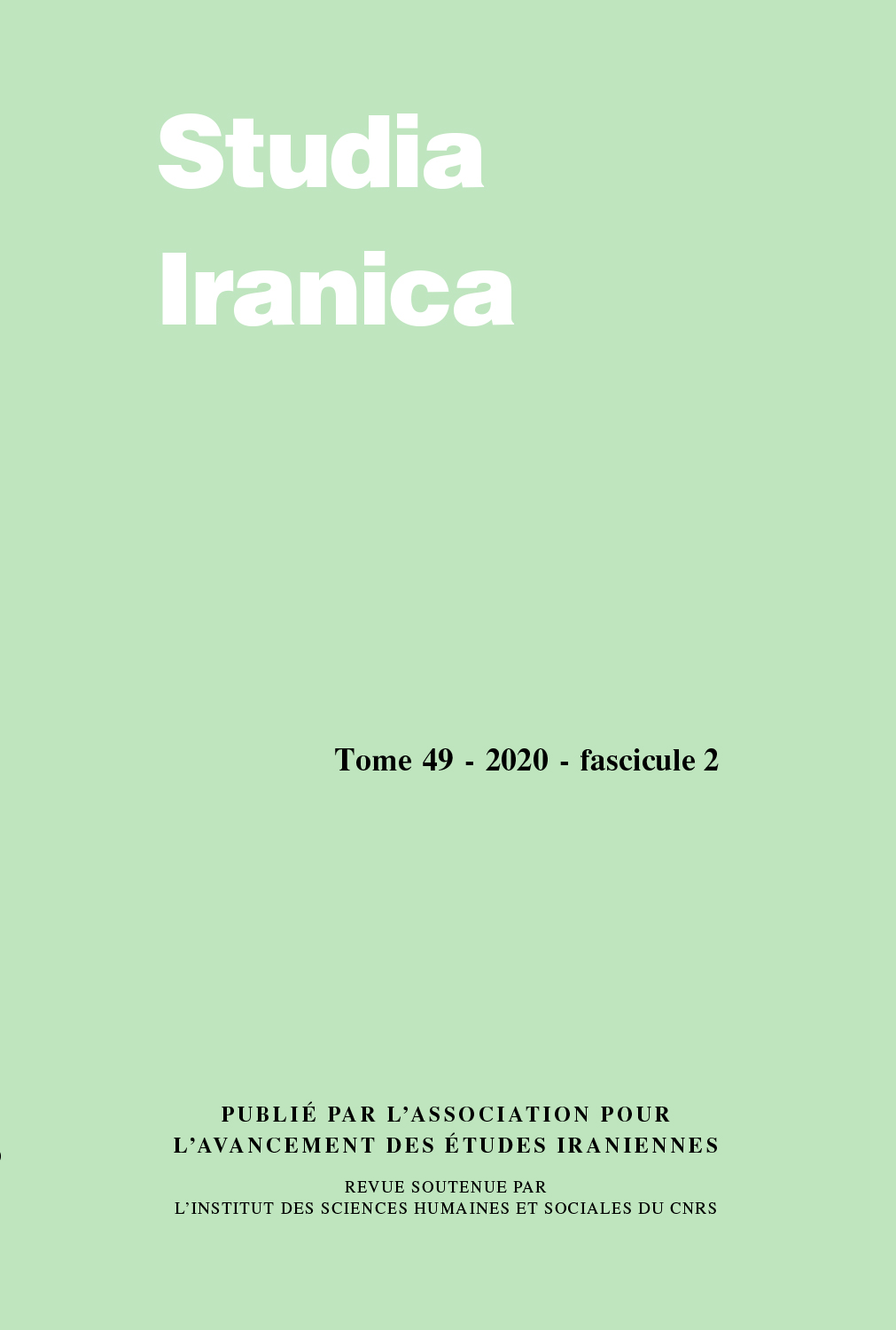 previous article in this issue previous article in this issue | next article in this issue  |

Preview first page |
Document Details : Title: The Processing of Gold and Silver Tax in the Achaemenid Empire Subtitle: Herodotus 3.96.2 and the Archeological Realities Author(s): ZOURNATZI, A. Journal: Studia Iranica Volume: 29 Issue: 2 Date: 2000 Pages: 241-271 DOI: 10.2143/SI.29.2.565528 Abstract : Herodotus 3.96.2 is commonly held to imply that Achaemenid monarchs routinely hoarded their gold and silver revenues in the form of ingots or 'bullion,' presumably in accordance with traditional eastern practice. This study notes the absence of sound evidence for the common presumption that Persian, and generally eastern, authorities hoarded surplus gold and silver in solid form. It proposes that Herodotus' passage ought to be interpreted instead primarily as a reference to a systematic quality control exercised by the Achaemenids over the consistency of gold and silver. The need for such oversight, acknowledged in a number of earlier studies, is here argued to be substantiated not least by the strict requirements of purity of Persian gold and parallel evidence for the existence of a distinct Achaemenid standard of silver composition. Le passage d'Hérodote 3.96.2 se réfère à une pratique achéménide de conversion de tribut en métaux précieux en lingots suivant une habitude supposée traditionnelle de l'Orient. Cette étude signale l'absence de témoignages solides sur cette coutume traditionnelle supposée, et offre une lecture du texte par rapport au besoin officiel des autorités achéménides de contrôler la teneur variable des métaux précieux en circulation. Ce besoin, que certains commentateurs du texte avaient déjà reconnu, s'accorde avec les spécifications rigoureuses concernant la qualité de l'or et avec la composition chimique constante de l'argent analysé achéménide. |
|


